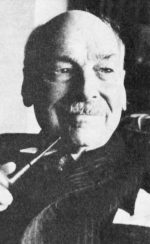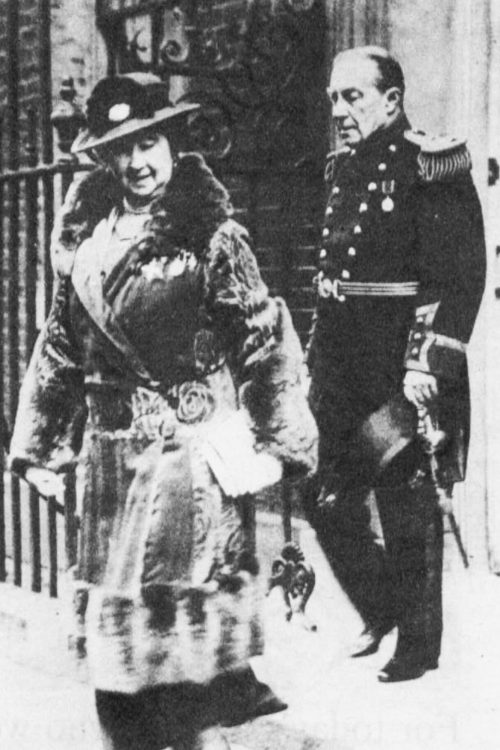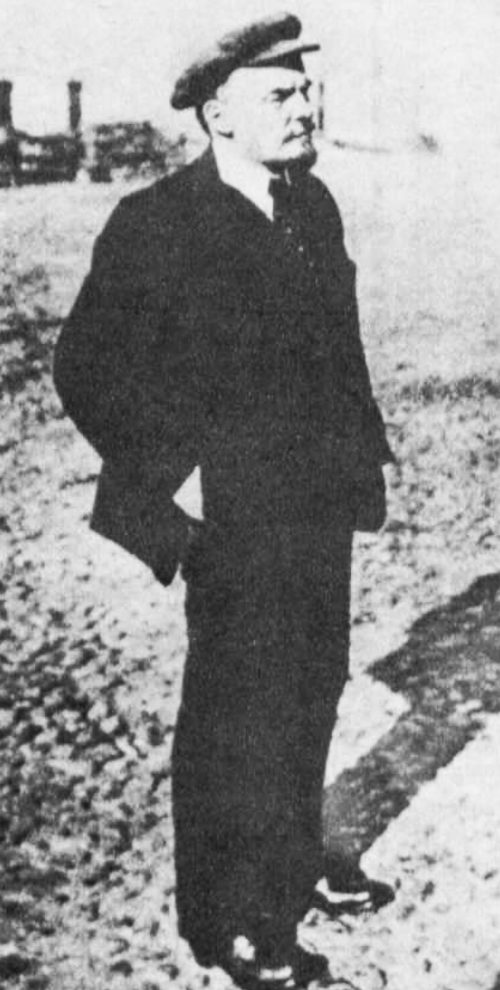Four faces of history
Clement Attlee on his four choices as Men of our Time

A new series of Granada’s Men of Our Time begins on Wednesday. There are four programmes in the series dealing with Lenin, King George V, Stanley Baldwin, and Hitler. Here EARL ATTLEE assesses the lives and influence of the four men.

THE four personalities of whom I write today form a totally disparate group.
Two of them are characteristic British figures who exemplify in their careers and qualities that process of continuity and peaceful change which differentiates our island story from that of the continent of Europe.
The other two are dynamic figures whose careers have profoundly influenced world history, the one an anachronism, a throw back to barbarism, the other the protagonist of a new way of life, the ultimate development of which is of profound importance to the human race.


KING GEORGE V had the great advantage, which he shared with his second son, of not being born heir to a throne. Brought up to manhood as a serving officer in the Navy, he was somewhat alarmed when the death of his elder brother opened to him the prospect of succeeding his father to the British Crown.
He was reassured by his cousin, Prince Louis of Battenberg, that there was no better training for a high position than service in the Royal Navy.
Years later the same advice was tendered by his son, another distinguished admiral, Earl Mountbatten, to King George VI, and its wisdom is again illustrated in the Duke of Edinburgh.
King George had no easy time. He had to deal with a constitutional crisis in the clash between the Lords and Commons in 1910. Though fearing an undermining of the hereditary principle, he gave his assent to Mr. Asquith’s threat to swamp the Lords, if they proved obdurate.
He then had to face World War I and give the nation the example of steadfastness and sympathy in critical times.
A few years later he was faced with an unknown quantity, a Labour Government. A narrow reactionary might have tried to avoid this by trying to get the two capitalist parties to combine. Not so King George.
He acted as a constitutional monarch. I did not meet him often, being Postmaster General, but found him friendly and interested in the work of my department.
I would have described him as a good, commonsense man of average ability with a strong sense of duty to his people.
I understand that he was not very successful as a father, his sons being somewhat in awe of him. His son was the first of the Georges to break away from the unfortunate tradition of the dynasty in this respect.

STANLEY BALDWIN I knew well, indeed for some time I was his opposite number in the House of Commons. He was the son of a Midland businessman, but related on one side to the pre-Raphaelite painter Burne Jones, and thus in contact with the circle round poet and artist William Morris, and, on the other, to Rudyard Kipling.
With this background he naturally had a broad outlook.
Though half Scottish he was characteristically English in his love of compromise and his desire for peace at home and abroad. I always felt that, though he disagreed with Labour, he understood our outlook. There was nothing he liked better than having long talks with Labour members.
He did two great services to his country. The first was after the General Strike in which, not unsuccessfully, he sought to assuage the bitter class conflicts in the nation and did much to modernise the Conservative Party. The second was over the abdication crisis when he interpreted the real feeling of the country.
He consulted me at the time and I think I gave him the right advice as to the feelings of the majority of the people. He was less successful in facing the international situation.
He failed to bring about “the great alliance,” to use Sir Winston Churchill’s expression, which would have prevented World War II. Yet he also failed to rearm Britain, which was the alternative.
If he had shown the same courage in facing the dictators as he did the Press Lords, the course of history might have been changed. In other matters, notably India, he showed a forward looking view, thus serving the spirit of peaceful change.

LENIN, whose doctrines still inspire nearly half the peoples of the world, though a prophet of revolution, was essentially Russian. A devout follower of Karl Marx, he got his chance to apply Marxist principles to a great country.
Marx himself was apprehensive at the idea of his principles being applied by the Russians. I think that he had always thought of his principles being applied in a country which had already experienced the bourgeois liberalism which followed the industrial revolution.
A man of tremendous will power and personality, Lenin gave the leadership which the Russian revolution needed and without which it might well have failed owing to sectional and personal rivalries.
He was probably right in thinking that, in a country so backward as Russia, with no democratic tradition, violent revolution and a dictatorship were the only way.
On the other hand, his switch to the new economic policy showed a degree of flexibility and it is known that he distrusted Stalin for his narrow-mindedness.
I recall George Lansbury, telling me on his return from a visit that Lenin would have liked to have had advice from the Socialist thinkers, the Webbs and R. H. Tawney, on future policy.
His views on the minorities in Russia and the impossibility of applying the same methods to countries with a different history showed a wider outlook. It may be that Mr. Kruschev [sic: Khrushchev – Ed] is a better Leninist than Mao Tse-tung.
ADOLF HITLER was unlike Lenin in every respect except will-power. Only in a country such as Germany with a morally and mentally sick people could such a man have attained power. In Britain he would have been only a nuisance and a bad joke, like Oswald Mosley.
There is almost nothing to be said in his favour. A dosshouse loafer with a collection of prejudices which he thought were ideas, he had great powers as a mob orator and considerable ability as a Party organiser.
He was fortunate in operating among a people of no political sense and of encountering no man of character and will power, either civil or military, able to withstand him. Hence his success up to 1940.
I am told that Germans try to forget him and rightly so — for apart from his autobahns he left behind him only ruin.
He was, in effect, a destructive force, resolved to rule without regard to the welfare of any other human being. But for Speer, one of the other Nazi leaders, he would have liked all Germany to perish with him.




